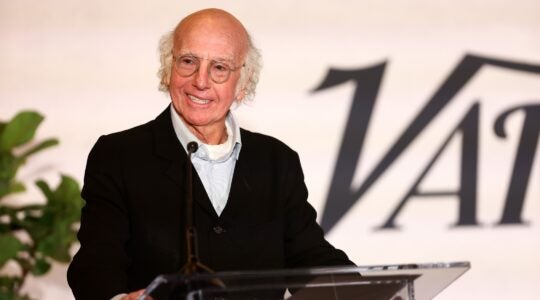In a dispatch titled "Settler Scourge," the Israel Policy Forum’s M.J. Rosenberg writes in Friday’s edition of his weekly email that the main obstacle to Israeli-Palestinian peace is Jewish settlement in the West Bank.
While the settlements certainly are an obstacle — and the violence by radicals among the settlers in recent weeks has been shameful, repugnant and harmul to the Jewish national cause — Rosenberg ignores one of the main problems on the Palestinian side and misconstrues another.
The problem he completely ignores is Palestinian violence — namely, terrorism against Israelis and intra-Palestinian fighting. Hamas’ occupation of Gaza, rocket fire into Israel and the unending campaign for Israel’s destruction is at least as much an obstacle to peace as the existence of Jewish towns in the West Bank, to say nothing of Palestinian terrorism committed by groups other than Hamas. How can Rosenberg ignore this?
The problem Rosenberg misconstrues is the Palestinian commitment to a two-state solution. He writes:
Today the Palestinian Authority works with Israel to combat terrorism, is fully committed to the two-state solution, and is engaged in negotiations with Israel on a final status agreement.
This misconstrues the Palestinian Authority. The elected prime minister of the Palestinian Authority is Hamas leader Ismail Haniyeh, who is committed to Israel’s destruction, does not negotiate with Israel and backs terrorist attacks against Israelis. While P.A. President Mahmoud Abbas deposed Haniyeh in June 2007, when Hamas took over Gaza, that action did not carry weight under Palestinian law, and many Palestinians — including the lawyer who drafted the relevant law — still regard Haniyeh as prime minister.
The West, of course, ignores this — as does Rosenberg.
That’s a mistake, and not just for technical legal reasons. Even if one argues that Hamas has no part in the Palestinian Authority, it’s absurd to pretend that the Palestinian Authority constitutes the Palestinians’ leadership. It’s just part of the Palestinian leadership — and, some might argue, the weaker part.
Even if Abbas’ Palestinian Authority were able to cut a deal with Israel, Hamas could scuttle it from Gaza. What good is a peace deal with a Palestinian leadership that cannot impose its authority over all Palestinians? Israel, at least, can impose its will upon its extremists, as we saw last week in Hebron and as we saw with Gaza’s violent evacuees in August 2005, when Israel withdrew from the Gaza Strip. Among the Palestinians, however, Hamas has veto power.
In ignoring these obstacles to peace on the Palestinian side, Rosenberg doesn’t just place the burden of sin on the Jews while letting the Palestinians off scot-free. He does a disservice to the peace process and its proponents by ignoring the most pressing obstacles to peace — and setting it up for yet another failure.
JTA has documented Jewish history in real-time for over a century. Keep our journalism strong by joining us in supporting independent, award-winning reporting.





